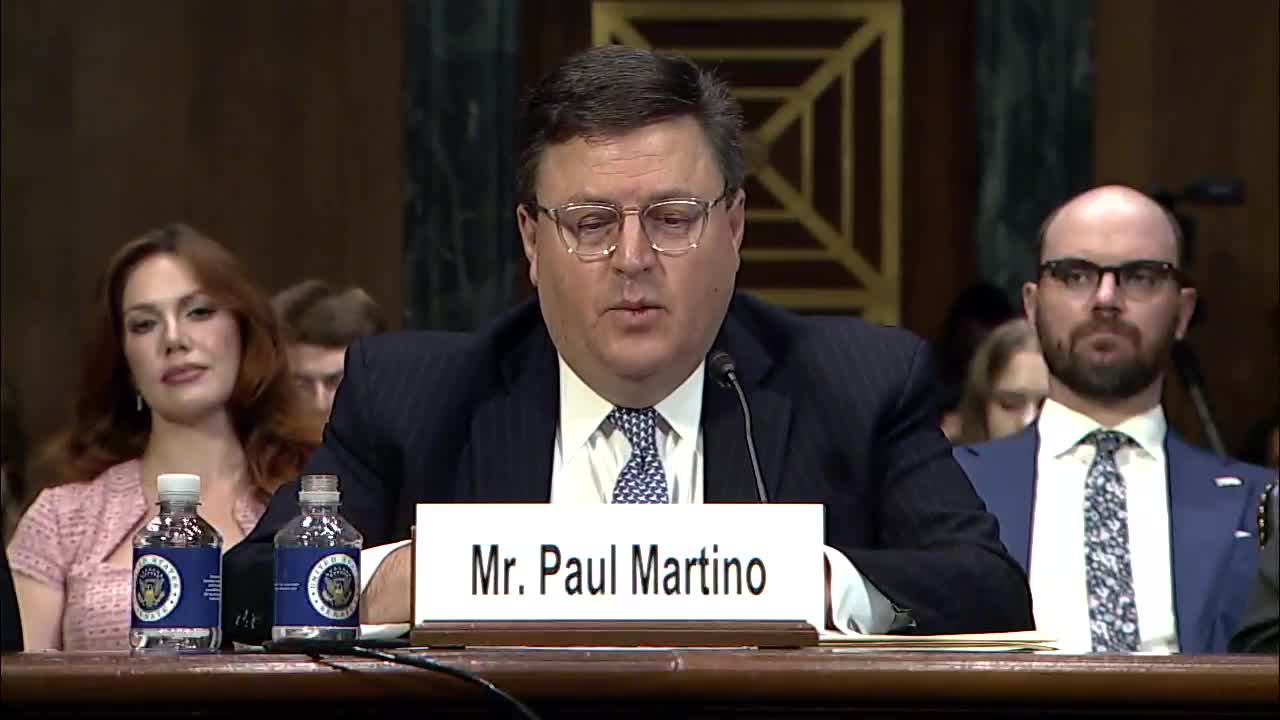Tech Standards Debate Addresses Data Protection Requirements for Businesses
July 30, 2025 | Judiciary: Senate Committee, Standing Committees - House & Senate, Congressional Hearings Compilation
This article was created by AI summarizing key points discussed. AI makes mistakes, so for full details and context, please refer to the video of the full meeting. Please report any errors so we can fix them. Report an error »

In a recent hearing titled "Protecting the Virtual You: Safeguarding Americans' Online Data," the U.S. Senate Committee on the Judiciary convened to address the pressing issue of online data protection. The meeting highlighted the need for uniform standards across businesses to ensure the safety of Americans' personal information.
A key point raised during the discussions was the necessity for businesses to adhere to equivalent requirements when it comes to data protection. This principle aims to create a level playing field, particularly for large technology service providers, who often handle vast amounts of sensitive data. The testimony presented included a chart illustrating various state law requirements, emphasizing the disparities that currently exist in data protection standards.
The implications of these discussions are significant. As digital interactions continue to grow, the potential for data breaches and misuse of personal information increases. Establishing consistent standards could enhance consumer trust and accountability among businesses, ultimately leading to better protection of online data.
While the hearing primarily focused on the need for uniformity in data protection standards, it also opened the floor for further discussions on the responsibilities of tech companies and the role of government in regulating these practices. As lawmakers consider the next steps, the outcome of this meeting could shape the future landscape of online privacy and data security in the United States.
A key point raised during the discussions was the necessity for businesses to adhere to equivalent requirements when it comes to data protection. This principle aims to create a level playing field, particularly for large technology service providers, who often handle vast amounts of sensitive data. The testimony presented included a chart illustrating various state law requirements, emphasizing the disparities that currently exist in data protection standards.
The implications of these discussions are significant. As digital interactions continue to grow, the potential for data breaches and misuse of personal information increases. Establishing consistent standards could enhance consumer trust and accountability among businesses, ultimately leading to better protection of online data.
While the hearing primarily focused on the need for uniformity in data protection standards, it also opened the floor for further discussions on the responsibilities of tech companies and the role of government in regulating these practices. As lawmakers consider the next steps, the outcome of this meeting could shape the future landscape of online privacy and data security in the United States.
View full meeting
This article is based on a recent meeting—watch the full video and explore the complete transcript for deeper insights into the discussion.
View full meeting